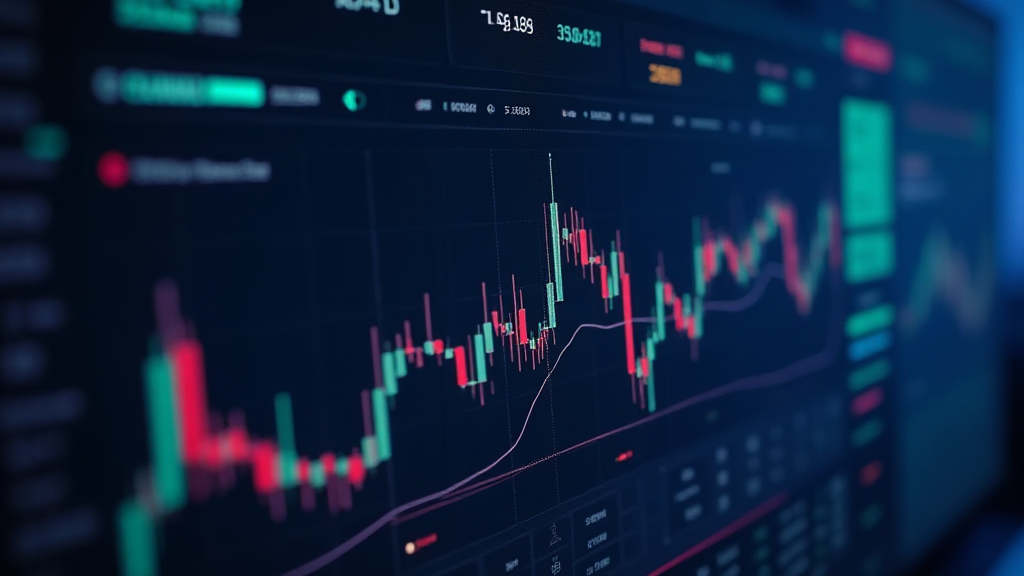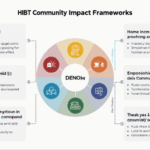Vietnam Crypto Exchange Regulations 2025: What You Must Know
With the rapid growth of the digital currency market, countries around the world are striving to establish regulations that ensure the safety and security of their financial systems. As of mid-2024, $4.1 billion was lost due to hacks in decentralized finance (DeFi) alone, indicating a pressing need for robust regulatory frameworks. Vietnam is on the brink of implementing significant changes to its regulatory landscape for cryptocurrency exchanges by 2025. This article delves into what these changes entail, presenting an insightful forecast into the future of crypto regulation in Vietnam.
The Current State of Cryptocurrency Regulations in Vietnam
As of now, Vietnam has been navigating the turbulent waters of cryptocurrency regulations. The country’s central bank, the State Bank of Vietnam (SBV), has defined some initial frameworks but has largely stayed reserved when it comes to fully embracing cryptocurrencies. Crypto in Vietnam has been viewed predominantly as a medium for investment rather than a currency due to concerns regarding money laundering and fraud.
According to a recent survey, as of early 2024, approximately 5% of Vietnam’s population had engaged in cryptocurrency trading. Additionally, user growth rates have shown a consistent upwards trajectory of roughly 30% per annum, hinting at a growing fascination and trust in digital currencies. Despite the risks, the hunger for regulations within the country is evident. In 2025, the Vietnamese government aims to provide clearer regulations that can help establish a secure trading environment.

Proposed Regulations for Crypto Exchanges in 2025
The anticipated regulations aim to address several crucial areas to ensure a secure trading environment:
- Licensing Framework: Every cryptocurrency exchange operating in Vietnam will be required to obtain a license from the SBV. This move is expected to standardize operations, ensuring that exchanges adhere to financial norms and security protocols.
- Customer Protection Measures: New mandates will require exchanges to implement strict customer verification processes, potentially akin to KYC (Know Your Customer) practices utilized in traditional banking.
- Anti-Money Laundering (AML): Compliance with AML protocols will be mandatory, compelling exchanges to monitor suspicious transactions and report them to authorities.
Impact of Regulations on the Vietnamese Crypto Market
The 2025 regulations will likely reshape Vietnam’s crypto landscape significantly. Here’s a scenario breakdown of the impact:
- Increased Trust: By establishing regulated frameworks, user trust can be bolstered. As users feel more secure, this could increase participation in the digital asset economy.
- Improved Legitimacy: The regulations may drive away rogue operators while allowing legitimate businesses to thrive. This could lead to a snowball effect, attracting international crypto exchanges to set up operations in Vietnam.
- Development of Domestic Projects: With a clearer regulatory structure, more Vietnamese entrepreneurs will likely venture into crypto-related businesses and innovations.
Challenges Ahead
Despite the promising outlook, challenges remain:
- Regulatory Compliance Costs: Smaller exchanges might struggle to meet compliance costs, which could deter them from continuing to operate.
- Adoption of Technology: The adaptation of new systems and technology to monitor and enforce compliance will require substantial investment and expertise.
- Market Dynamism: Rapid changes in the cryptocurrency market could render regulations outdated quickly, calling for a dynamic regulatory approach.
International Comparisons
To gain a better perspective, we can look at other regions that have implemented stringent regulations:
- Japan: After facing a major hack in 2018, Japan instituted comprehensive regulations that enhanced operational transparency.
- Europe: The European Union is implementing MiCA (Markets in Crypto-Assets), aiming for standardized regulations across member states.
Comparing these strategies emphasizes the necessity for Vietnam to craft a regulation that not only addresses local needs but also aligns itself with international standards.
Future Outlook
In summary, the upcoming Vietnam crypto exchange regulations 2025 are poised to disrupt the current landscape, creating both opportunities and challenges. With strengths in user growth and a burgeoning interest in cryptocurrencies, Vietnam is ideally positioned to leverage these regulations to foster a safe and robust trading environment.
While the road ahead may be fraught with obstacles, the Vietnamese government and financial authorities have an essential role in paving the way for a well-regulated crypto environment. The balance between innovation and regulation will be key to securing Vietnam’s place on the global cryptocurrency map.
Conclusion
As Vietnam moves towards implementing its crypto exchange regulations in 2025, it’s essential for stakeholders, from investors to exchanges, to stay informed and compliant. The potential benefits of a regulated environment are vast, from increased safety to enhanced legitimacy and growth opportunities. Thus, as Vietnam progresses, everyone involved should align their strategies accordingly and position themselves ahead of the regulatory curve.
Remember, all discussions around regulations should fundamentally prioritize security and long-term growth. Consult local regulators and industry experts to ensure adherence to best practices, given the fast-evolving nature of this space.
For more valuable insights and detailed guides on cryptocurrency regulations, visit hibt.com.
Stay tuned to officialcryptonews for updates on the crypto landscape in Vietnam and globally.
By Dr. Nguyen Minh Tuan, an expert in blockchain technology and regulatory compliance, with over 15 published papers and lead auditor of multiple high-profile blockchain projects.




